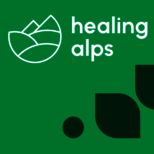Institut für Ökomedizin
Forschungsprojekte
Aktuelle Forschungsprojekte
Vergangene Forschungsprojekte
- Lead EU Alpine Space HEALPS2 (Evidence-based Health Tourism – Strategies)
- Lead WISS Alm und Gesundheit (Nature-based Therapies – Alpine Agriculture & Microbioma)
- Land Salzburg Gesund in die Zukunft (Evidence-Based Health Tourism – Innovative Strategies & Products)
- Lead EU Interreg WINHEALTH (Nature-based Therapies – Winter Exercise)
- Lead EU Interreg Trail for Health Nord (Nature-based Therapies – Immunosenescence)
- EU Interreg Netzwerk Gesundheitstourismus Wald (Nature-based Therapies & Evidence-based Health Tourism – Forest)
- WISS HIVE Hybrid Interaction in Vibrant Environments (Evidence-based Design – Kindergarten)
- FFG Qualifizierungsnetzwerk E-PAST (Evidence-based Physical Activities in Sport and Health Tourism)
- Lead Meran beWEGt (Nature-based Therapies – Community Health Promotion)
- Lead ANKER (Nature-based Therapies – Green Exercise vs. Forest Therapy in Algund) | Alpenverein (Mountain Hiking & Health)
- FFG Qualifizierungsnetzwerk Gebäudesoftskills (Evidence-based Design)
- Land Salzburg Innovation Quality in Tourism
- Lead Health Tourism Strategy Allgäu 2030
- Lead Analysis of the Tyrolean Health Promotion 2030



